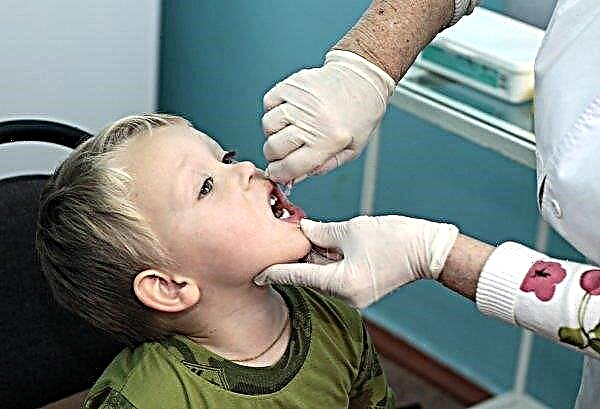It's no secret that newborn babies often suffer from colic. This is explained by the fact that the work of the digestive system is not yet well established. For this reason, other problems associated with the gastrointestinal tract often arise: the baby may experience lactase deficiency, flatulence, food allergies, stool disorders (most often constipation), profuse regurgitation, and so on. Unfortunately, in the first year of life, such problems cannot be avoided. However, it is still possible to reduce the risk of negative manifestations, as well as the degree of their severity. To do this, you need to figure out what the essence of the problem is, what are the symptoms and the specific reasons why the child farts.

Bloating in an infant is one of the most common problems young parents have to deal with.
What is flatulence
This concept characterizes the excessive accumulation of gases in the gastrointestinal tract, which is manifested by bloating, discomfort, pain, and a feeling of bloating. This condition is often resolved by the abundant release of a large amount of gas, which, in turn, also has an official medical name - flatulence.
The composition of substances that fill the digestive tract includes gases such as:
- Carbonic;
- Hydrogen;
- Methane;
- Hydrogen sulfide.
Their formation and accumulation occur due to the ingress of air into the stomach along with food, as well as due to the vital activity of microorganisms. Another source of gas formation is the interaction of hydrochloric acid, which is always present in the stomach and is necessary for digestion, with bicarbonate coming from the pancreas.
On a note. Often, constipation prevents the discharge of gases, which thereby provoke their even greater accumulation in the digestive tract. In other cases, a child or an adult cannot control the process of passing gases with an insignificant content of them in the digestive tract.
For newborn babies, as well as for preschool children, this condition is not uncommon. It is bloating in a baby that often turns out to be the first difficult test that not only the child, but also his parents have to overcome.
Interesting. As practice shows, colic occurs in every fourth child (and most often they occur in boys). Negative symptoms make themselves felt in the late afternoon.
Symptoms of flatulence in a newborn baby
Bloating in an infant can be very unpleasant, even painful. That is why this condition is accompanied not only by the main (the child farts strongly), but also by accompanying symptoms.
The main signs of flatulence include:
- Cry;
- Restless behavior;
- Loss of appetite;
- Tight stomach;
- Bubbling in the abdomen;
- Bad sleep;
- In some cases, constipation;
- Pallor of the skin.
In children who have reached the age of 2 years, signs of flatulence are:
- Feeling of hunger, moreover, that there is a feeling of a full stomach;
- Abdominal pain;
- Belching, hiccups;
- Tight enlarged belly;
- Boiling in the intestines;
- Bad breath;
- Nausea (sometimes vomiting);
- Stool disorder (often constipation or alternating diarrhea and constipation);
- Increased fatigue.
On a note. If it is necessary to establish the exact cause of the listed symptoms, but this cannot be done at home, it is better to seek the help of a specialist and conduct a clinical diagnosis.

Colic in a baby
Since the newborn cannot tell about his problem himself, parents have to focus on his behavior. The main symptom of bloating (along with hunger and illness) is a strong constant crying of the baby. The fact is that flatulence is very often accompanied by colic, therefore, pain in the abdomen. In such cases, the baby cannot sleep normally, cries loudly, twists his legs or tries to squeeze them to himself. If you touch the baby's belly, it will be tight, round, inflated.
Most often, an attack occurs after a meal. After a bowel movement, the child feels better. The rest of the time, the baby feels good, eats with appetite.
The age period when the baby constantly feels bloated and farts begins in the first month of life and ends at 3-4 months. Moreover, in babies born prematurely, this period can be delayed up to 5 months.
Usually, such manifestations go away on their own, however, in some cases, a strong crying of a child who farts a lot at 2-3 months can signal a serious pathology. That is why, when these symptoms occur, it is better to consult a pediatrician.
Causes of frequent farting in children
If an infant farts a lot, this may be due to various factors that are specific to the child's age. The reasons are both natural and pathological, but the most common is an imbalance in the diet of the baby.
The factors that can cause frequent farting in a month old baby include:
- Lack of enzymes needed for normal digestion. Once in the gastrointestinal tract, the products begin to "ferment", as a result of which excessive gas formation occurs.
- Swallowing air while feeding or crying.
- Consumption of substandard or unsuitable mixtures.
- Incorrect preparation of the mixture.
- Binge eating.
- Dysbacteriosis. This condition is characterized by a lack of beneficial bacteria in the digestive tract.
- Lactase deficiency. It occurs when there is a shortage of a special enzyme capable of digesting lactose (included in breast milk and infant formula).
- Allergy to cow's milk protein.
- Premature transfer to IW.
- Improper nutrition of a nursing mother during lactation (consumption of spicy foods, flour products, smoked meats and other foods that contribute to increased gas formation).
- Viral infections.
- Abnormal intestinal structure - peristalsis malfunction, the intensity of fermentation processes increases, as a result of which the baby constantly farts.
On a note. Frequent farting often occurs in children born prematurely, with signs of rickets, malnutrition.
The reasons why an older child often farts may be diseases of the digestive system (for example, colitis, gastritis). In addition, strong anxiety can provoke such a state: under the influence of stress, the intestinal tone increases, a spasm occurs, as a result of which food moves more slowly through the gastrointestinal tract, there is strong fermentation and gas.
On a note. If the baby often farts, but feels good, then there is no cause for concern. It is obvious that the gases from the intestines go out on their own, without causing bloating and colic. By 4 months, the number of bunches will decrease and the likelihood of colic will also decrease.
Intestinal colic
Intestinal colic may be the reason that the child often farts. The baby, who has been in the mother's stomach for 9 months, is used to a different type of food. The digestive system of a newborn is unprepared for new conditions and at first cannot perfectly cope with its task. Babies up to 3-4 months of age do not have enough digestive enzymes that can break down milk, so even breast milk is difficult for the baby to take. Due to these features, newborn babies often suffer from intestinal colic.
On a note. Colic is a spasm, so the painful sensations last for several minutes, then the child feels better, and after a while they again make themselves felt.

Improper latching to the breast often leads to unpleasant symptoms in the newborn
Flatulence
The fact that the child often farts is due to the underdevelopment of the infant's gastrointestinal tract, whose body has not yet had time to adapt to new conditions. In addition to the lack of enzymes, it is worth noting the underdevelopment of the microflora of the newborn. The fact is that in adults, the activity of bacteria that provoke fermentation is suppressed by the action of beneficial bacteria that make up the intestinal microflora. In an infant, it begins to form from the first days of life and only over time reaches sufficient development. Even a fully formed microflora does not always guarantee the absence of flatulence, since for one reason or another, there may be a shortage of beneficial bacteria in the intestine.
The following circumstances lead to dysbiosis:
- Late attachment to the breast (breast milk contributes to the development of the child's own microflora);
- Feeding artificial mixtures, improper preparation, inappropriate mixture;
- Prematurity;
- Complicated labor;
- Food allergy;
- Infectious diseases;
- Bowel disorders;
- Taking antibiotics.
Flatulence in a child can also be caused by:
- Incorrect feeding technique (the baby does not fully capture the breast or bottle, as a result of which air enters the stomach with food, which provokes bloating and regurgitation);
- Improper nutrition of a nursing mother (if she consumes large quantities of raw vegetables, sweets, flour, fatty and smoked foods, nuts).
Other possible causes
In addition to the above reasons, frequent farting in an infant can be triggered by the following factors:
- Lactase deficiency;
- Constipation (usually affects children who are bottle-fed);
- Improper complementary foods (if there are large quantities of foods such as beans, peas, cabbage, fresh vegetables and fruits);
- Non-compliance with the diet;
- Wrong order of food consumption. For example, vegetables and fruits are digested faster than other, heavier foods. The latter will interfere with light products to pass through the intestines, in connection with which the processes of fermentation and gas formation will begin.
Dangerous symptoms
The child must be shown to the doctor if, in addition to flatulence, he has the following symptoms:
- Fever;
- Weakness, lethargy;
- Forced posture;
- Vomiting with a strong unpleasant odor;
- Bloody clots in the stool;
- Farting with mucus escaping.
Preventive measures to prevent flatulence
To prevent excessive gas formation in the body of the crumbs, the following measures can be taken:
- Follow the feeding technique.
- If the baby is on GW, the mother needs to follow the diet and adhere to the correct diet, drink more water.
- If the problem is lactase deficiency, the doctor will prescribe an enzyme to the baby or switch the baby to a lactose-free mixture.
- Give the child preparations containing probiotics (thanks to this, the microflora will improve).
- Add prebiotics to the baby's diet (they promote the growth of beneficial bacteria).
- Observe the amount of food consumed by the child.
- Protect the baby from anxiety and stress (a newborn baby often gasses if he is very frightened).
- Provide your baby with an active lifestyle.

With lactase deficiency, babies are given a special (lactose-free) mixture
Frequent farting in a child is usually not a sign of a pathological condition. This phenomenon is quite natural for a child's (especially an infant's) organism. However, if you have a serious disorder that is indicated by certain symptoms, you should see your doctor.



